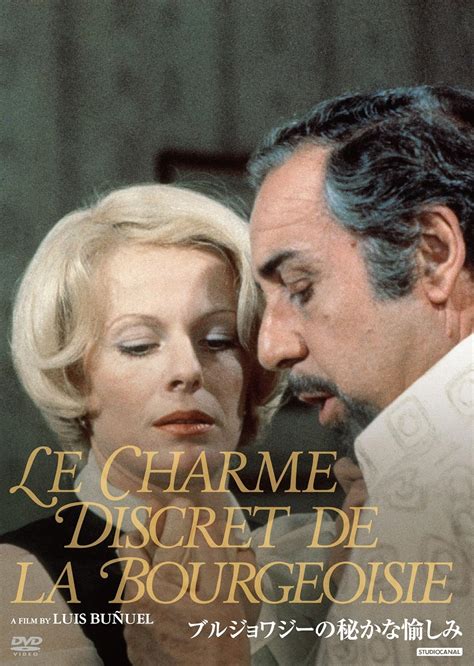The Discreet Charm of the Bourgeoisie

Description:
The Discreet Charm of the Bourgeoisie is a surreal comedy film that explores the absurdity and hypocrisy of the upper class. Directed by Luis Buñuel, the film follows a group of bourgeois friends who repeatedly attempt to dine together but find their plans continuously thwarted by a series of bizarre and dreamlike events. Through its non-linear narrative and satirical lens, the film critiques social norms and the entrenched values of the elite.Keywords:
Comedy, Surreal, Satire, Experimental, AbsurdityIs Discreet Charm of the Bourgeoisie a good movie?
"The Discreet Charm of the Bourgeoisie," directed by Luis Buñuel, is widely regarded as a cinematic masterpiece. Released in 1972, it showcases Buñuel's signature surrealism and social critique, focusing on a group of upper-class friends whose attempts to dine together are continually thwarted by absurd events. The film is celebrated for its sharp commentary on bourgeois values, innovative narrative structure, and dark humor. It won the Academy Award for Best Foreign Language Film and remains influential in both art and film studies.
What is the movie about the bourgeoisie?
"The Discreet Charm of the Bourgeoisie," directed by Luis Buñuel, is a surrealist film that satirizes the bourgeois class and their social pretensions. The story follows a group of upper-middle-class friends who repeatedly attempt to have a meal together, but each time they are thwarted by absurd interruptions and bizarre events. Through these interruptions, the film critiques the superficiality, hypocrisy, and existential absurdities of bourgeois life, showcasing the characters' inability to escape their own societal constraints.
Where was The Discreet Charm of the Bourgeoisie filmed?
"The Discreet Charm of the Bourgeoisie," directed by Luis Buñuel, was primarily filmed in France. Key locations include various settings in Paris and its surrounding areas. The film utilizes rich, surreal imagery and social commentary, depicting a group of upper-class individuals attempting to have a meal together but repeatedly thwarted by absurd interruptions. This reflects Buñuel's critique of bourgeois society and its pretensions. The film was released in 1972 and won the Academy Award for Best Foreign Language Film.
Explore More Categories:
Environment Sexual Harassment Catastrophe Minimalist Youth Human Experience Submarine Japanese Cinema Civil Rights War Drama Globalization Social Issue Odyssey Small Town Life Psychological Thriller Diversity Choices Humiliation Peculiarities Domestic Tension Childhood Retro Aesthetic Hacking Rock Power Dynamics